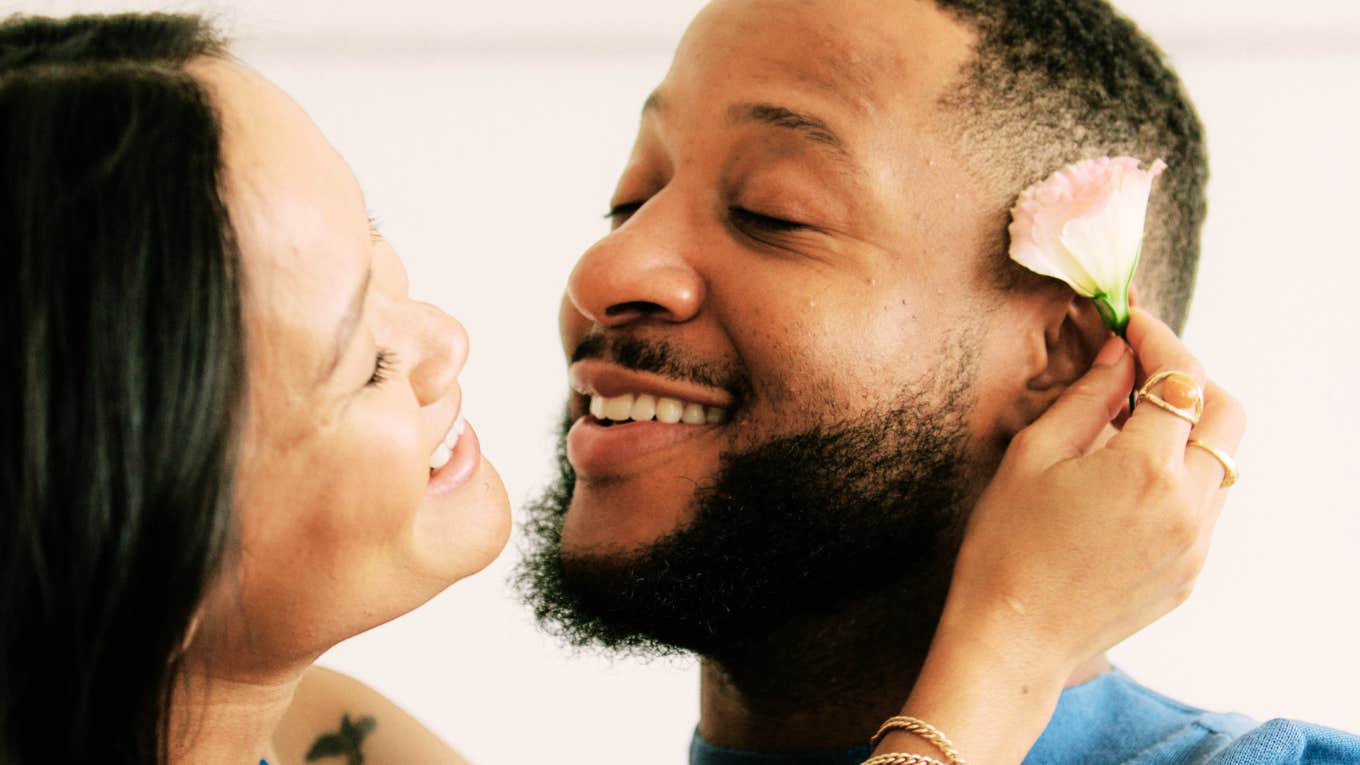People Who’ve Been In Long-Term Relationships Know These 8 Truths About Love Better Than Anyone Else
Real love is build over years of shared struggles, growth, and quiet moments.
 Lia Bekyan | Unsplash
Lia Bekyan | Unsplash Our intimate relationships teach us more than about the hearts of the ones we love. They teach us about ourselves. There is no greater people-growing machine than that of love. Our culture often views love as some fuzzy thing that gets passed around and makes you feel warm inside. But as all of us know, this happens only part of the time. The other part is full of anxiety, confusion, and frustration.
Having problems in our relationships is inevitable. Even our soulmates cause issues sometimes. According to renowned American psychologist John Gottman, couples disagree on unsolvable, never-ending issues 69 percent of the time. While many see conflict as a sign of incompatibility, conflicts that most couples experience are signals that the relationship needs growth to occur. Your relationship can be a foundation of profound growth and vitality. Even Abraham Maslow, famous for creating Maslow’s hierarchy of needs, argued that, without bonds of love and affection with others, we cannot go on to achieve our full potential as human beings.
People who’ve been in long-term relationships know these truths about love better than anyone else:
1. Happiness doesn't come by finding the right partner, but by being the right partner
 Miljan Zivkovic / Shutterstock
Miljan Zivkovic / Shutterstock
This requires massive personal growth. Your relationship allows you to learn how to control your anger, your reactions, and your defensiveness, so you can find new ways of being affectionate, giving, and respectful of your partner’s differences. It causes you to let someone depend on you. To behave in trustworthy ways that prove your commitment and reliability in the relationship.
To face the vulnerability of giving your heart to one person fully, without a secret life and escape routes. Being the right partner is not an easy journey. But the emotional depth and growth you will experience will bring fulfillment beyond what you ever imagined.
2. Facts matter less than feelings
 Monkey Business Images / Shutterstock
Monkey Business Images / Shutterstock
In a relationship, there are two roads of communicating. There is a fact and a feeling. As a guy, I have habitually clung to the facts of what was going on in my relationship. But our feelings are not some fact we can fact check; they are emotions. When communicating with our partners the one thing you don’t want to miss is the feeling. Because the feeling is what really matters.
If your partner is angry, realize there tends to be a feeling of hurt underneath that anger. Ask your partner why they are feeling hurt. That’s how you diffuse anger. Once you can show your partner that you understand why they feel the way they do, even if you disagree, the quicker both of you can connect and find a solution.
Research suggests that understanding and validating each other's feelings, rather than focusing solely on objective facts, can be more crucial for relationship satisfaction and well-being in couples. Even if perceptions are not entirely accurate, feeling understood and validated can be a stronger predictor of relationship quality than factual accuracy.
3. There will always be a reason to reject anyone
 simona pilolla 2 / Shutterstock
simona pilolla 2 / Shutterstock
Every single person is imperfect and every single person will cause you to want to push them away. To dump them. To leave them. The trick to making love last is to discover, and to continue to discover, reasons for staying together.
4. Withdrawal is death
 Mladen Mitrinovic / Shutterstock
Mladen Mitrinovic / Shutterstock
A dysfunctional relationship pattern that emerged from 40 years of research in John Gottman’s love lab was withdrawal. When we turn away from our partners, the affection, shared humor, and joy go out the window.
Withdrawal tends to happen when one person is emotionally unavailable or when a couple continues to behave in negative ways that push each other away. It’s emotionally crippling. Withdrawal kills intimacy and passion.
In couples, withdrawal, a form of emotional distance, can be detrimental and even perceived as a kind of emotional death, leading to relationship distress. A 2018 study confirmed that understanding the impact of withdrawal is crucial for healthy relationship dynamics, as it can trigger a cycle of negativity, increase conflict, and ultimately erode intimacy and satisfaction.
Personal growth comes from learning how to be hurt or angry and not withdrawing from the relationship. To learn how to say you’re upset, frustrated, and hurt, so both you and your partner can come together to talk through it. It takes emotional depth to not put up a wall. If you want a close intimate relationship, then that’s what you need to learn how to do.
5. Touch is the best way to connect
 Miljan Zivkovic / Shutterstock
Miljan Zivkovic / Shutterstock
Affectionate touch brings us closer and causes us to stay close. If you’re not touching your partner often, your relationship is not going to feel passionate. Both of you will feel that the connection and closeness you once had is diminishing.
While intimate touching does improve romance, affection touching deepens romance. It’s the gentle brush along the back as you pass in the hall. The touching of one’s hair as you lay in bed. Love thrives in the micro-moments of connection, and sometimes the best way to create connection is to reach out and touch your loved one.
6. Consistently ask yourself one question
 Miljan Zivkovic / Shutterstock
Miljan Zivkovic / Shutterstock
Ask yourself this question often: 'If I’m going to make this relationship work, what must I do? What must I quit doing?'
Often, we know what we want from our partner, but very few of us have a clear idea of what our partner needs from us. If your answers to this question are unknown, or if they feel superficial or vague, then it’s time you ask your partner.
“Am I helping you get your needs met in this relationship? (And if not, what can I do differently?)” Honor what your partner says. It matters.
Couples should focus on understanding each other's needs, maintaining curiosity about their partner, and actively working on their relationship through open communication and shared experiences. Research published by The Gottman Institute concluded that this includes being responsive to each other's bids for connection, valuing each other's independence, and making intentional decisions about the relationship rather than letting it drift.
7. Complaining to friends and family doesn’t help
 Worawee Meepian / Shutterstock
Worawee Meepian / Shutterstock
We feel so frustrated with our partners that it becomes easy to gossip with our friends and family about their flaws, their lack of desire, or their horrible communication skills. Unfortunately, our friends and family do not have the power to change your relationship.
If you have a problem, go directly to your partner. That’s the only person who can make the effort to change your relationship.
8. Love is a verb, not a feeling
 LightField Studios / Shutterstock
LightField Studios / Shutterstock
If you want your relationship to work, then you have to make an intentional effort to make it work. If you want the romance to stay alive, you have to keep it alive. As unattractive as that may sound to some people, I think that is the most attractive thing a person can offer.
“I’m making you a priority in my life and will continue to court you and learn new ways of making you happy.”
Is there anything more attractive than that? If you take the time to think about it, some of the biggest lessons we’ve learned have come from our intimate relationships.
Our relationships offer us a window into ourselves. We grow from miscommunication and misunderstanding. We become mature by learning how to control our emotions and improving the way we communicate when we are flooded with anger.
Love is more than just a feeling; it's an action and a commitment. This means that lasting love requires conscious effort, consistent actions, and a willingness to work at the relationship, even when feelings may wane. A 2020 study explained that couples who understand love as a verb are better equipped to navigate challenges, stay committed, and maintain intimacy over time.
Our relationships teach us what is and isn’t acceptable. With every relationship problem that occurs, ask yourself, “What lesson can I learn from this? What is this problem teaching me?”
Relationship problems can be a catalyst for profound personal growth. If you listen, you will quickly discover that life’s powerful lessons are taught within our relationships. With those closest to us.
Kyle Benson is a relationship coach who writes to help others understand the science of love and relationships.

